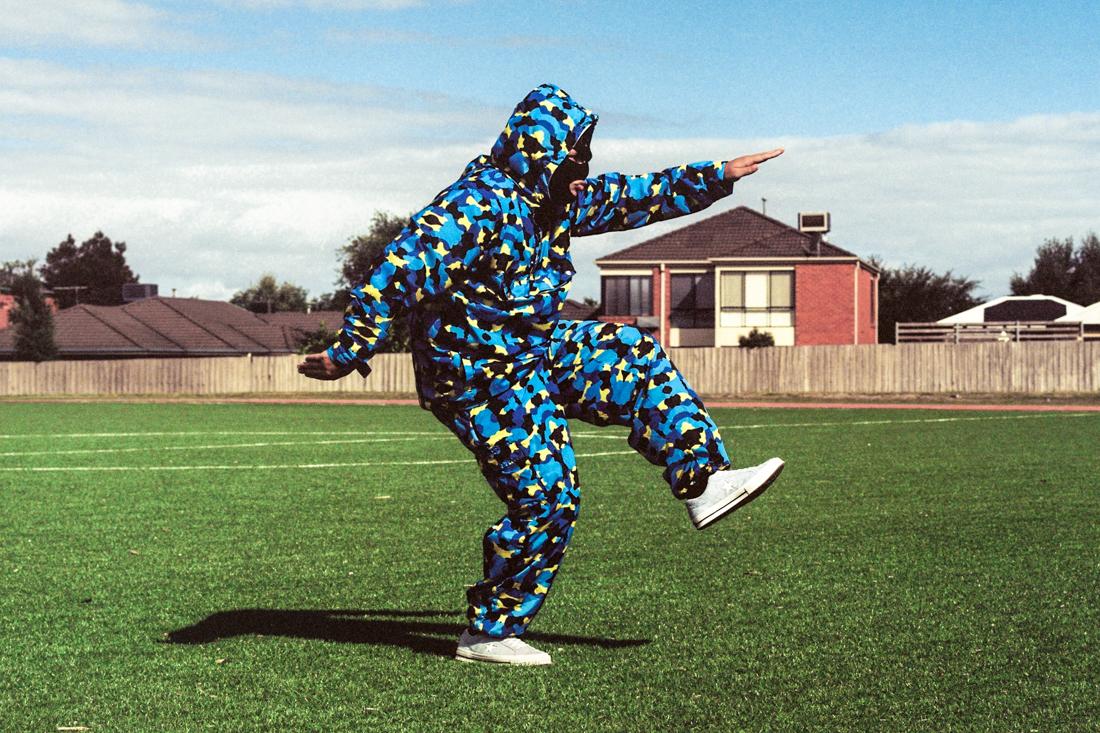Three Rising Streetwear Labels Style Converse's One Star
Having endured enough trends to claim stalwart status, the is one of those rare wildcard designs that managed to jump generations. Skate and street communities championed the One Star in the 90s, but who did they pass the torch to? We spoke to three up-and-coming local labels to find out how they identify with the One Star’s anti-conformist ideals.
JUNGLES
Jungles is the brainchild of Jack Ferguson, a leisure-lauding idealist who embodies the brand's anti-hero values. If he gets his way, Ferguson will never have a 'real' job again. Here's how he's planning on doing exactly that.
JUDAH.
If you couldn't tell by his ski mask, JUDAH.'s founder enjoys his anonymity. And if you want to know how someone born this side of the year 2000 built a flourishing label, read on.
PSEUSHI
Wesley Chiang is a Sydney-based creative who never planned to start a streetwear brand. However, a knack for screen printing — and a business-savvy friend — inspired him to start Pseushi. Here's how it happened.
